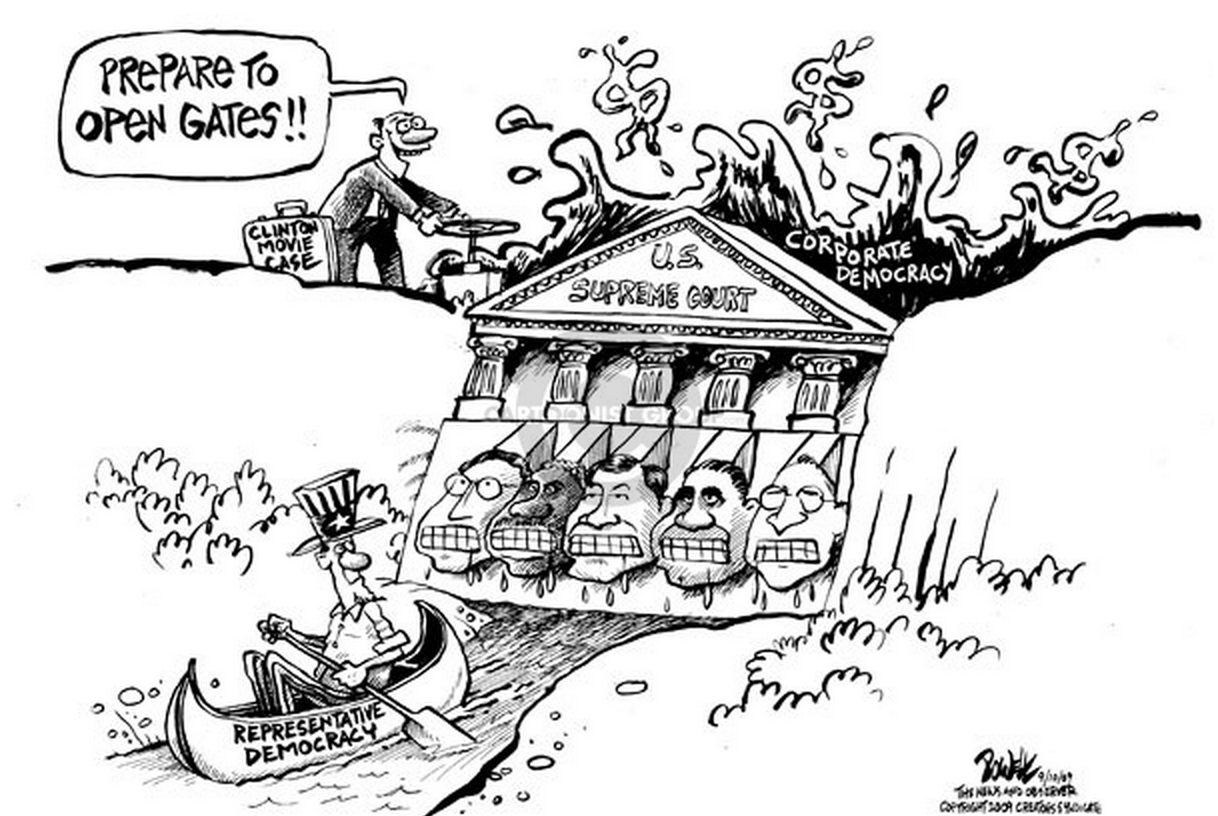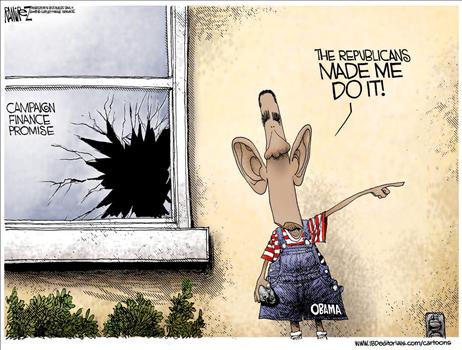As previously mentioned in the campaign finance reform timeline, Buckley v. Valeo overturned FECA in order to allow for unlimited campaign expenditures. Further, Citizens United v. FEC allowed for unlimited independent expenditures by organizations to directly support campaigns. The reasons for these rulings is that any limitation of use of money on a campaign could be seen as unconstitutional under the 1st amendment. If you limit the amount able to be spent on campaigns, the argument is that it is limiting political speech, which is illegal. However, some states have created incentives for candidates to limit spending by offering state money to fund campaigns if a candidate limits how much they spend, this concept is classified as public financing. The Supreme Court has ruled that if a candidate subscribes to public financing than spending limits are constitutional as long as the candidate has the option to refuse public funding [1]. In practice there are twenty-four states that give state funds to candidates as long as they agree to spending limits and the amount of private funding they will do; however, these grants usually do not cover full campaign costs and therefore more funding is necessary. These programs are called partial public financing. The way state or federal governments can distribute the money varies greatly. The most well-known use of public financing is for presidential elections, which after being started in 1976, had been used by every candidate up until President Obama in 2008 [2]. President Obama, as the presidential nominee in 2008 opted to not take public funds after previously hinting that he would not opt out of the public financing system [2]. This reflects that under the 2008 campaign finance laws (even before Citizens United) there were major incentives for a candidate to opt out of public financed campaigns and therefore not have a spending limit.
Sources:
[1] “Campaign Finance Reform: An Overview.” Campaign Finance: An Overview. National Conference of State, 3 Oct. 2011. Web. 3 Nov. 2013. <http://www.ncsl.org/research/elections-and-campaigns/campaign-finance-an-overview.aspx>.
[2]Schouten, Fredreka, and USA TODAY. “Obama Opts out of Campaign Finance System.” ABC News. ABC News Network. Web. 3 Nov. 2013. <http://abcnews.go.com/Politics/story?id=5206643>.

